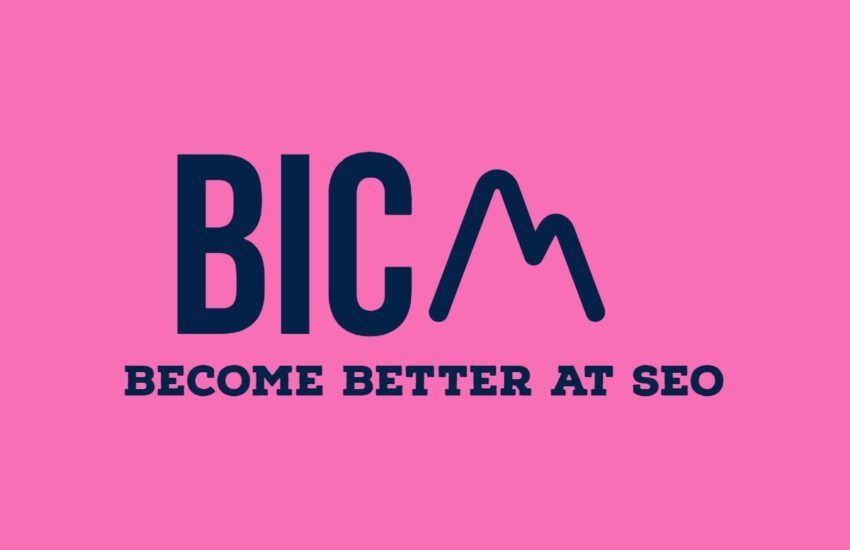Why do websites need privacy pages
- Why do websites need privacy pages
- What is the law about privacy pages
- Consequences of not having a privacy page
- Frequently Asked Questions
- 1. Why is having a privacy page important for a blog?
- 2. What information should be included in a privacy page for a blog?
- 3. Are there any legal requirements or regulations to consider when creating a privacy page for a blog?
- 4. How can a privacy page help build trust with blog visitors?
- 5. Should a privacy page be easily accessible on a blog?
- 6. Can a privacy page help protect a blog owner from legal liabilities?
- 7. How often should a privacy page be updated?
- 8. Are there any consequences for not having a privacy page on a blog?
- 9. Can a privacy page help mitigate cybersecurity risks for a blog?
- 10. How can a blog owner ensure that their privacy page remains compliant with evolving privacy regulations?
Why do websites need privacy pages
Websites need privacy pages, often referred to as Privacy Policies, to inform users about how their personal information is collected, used, and managed. These policies outline what data is gathered, why it’s collected, how it’s protected, and whether it’s shared with third parties.
What is the law about privacy pages
Laws like the General Data Protection Regulation (GDPR) in the EU and the California Consumer Privacy Act (CCPA) in California, among others globally, mandate that websites handling personal data must clearly disclose their data practices to users. These laws dictate that websites must inform users about:
1. Data Collection
What type of data is collected (name, email, IP address, etc.) and through which means (cookies, forms, etc.).
2. Purpose
The intended use of collected data (e.g., for improving services, marketing, etc.).
3. Third-Party Sharing
Whether data is shared with or sold to third parties.
4. User Rights
Users’ rights regarding their data, such as the right to access, correct, or delete their information.
5. Security Measures
How the website safeguards collected data from unauthorized access or breaches.
Failing to comply with these laws can result in hefty fines and legal consequences. Hence, having a comprehensive and transparent privacy policy is crucial for websites to maintain legal compliance and build trust with their users.
Consequences of not having a privacy page
Not having a privacy page or a compliant Privacy Policy can lead to various consequences:
1. Legal Penalties
Regulatory bodies can issue fines for non-compliance with privacy laws like the GDPR, CCPA, or other regional regulations. Fines can be substantial, especially for larger organizations.
2. Loss of Trust
Users may lose trust in a website that doesn’t transparently disclose its data practices. This can result in decreased user engagement, loss of customers, or damage to the website’s reputation.
3. Legal Actions
Users or consumer rights groups can take legal action against a website for not providing adequate information about data collection, potentially leading to lawsuits or legal disputes.
4. Barred Operations
In extreme cases, regulatory bodies can bar a non-compliant website from operating in certain regions or accessing user data, impacting its ability to conduct business.
Overall, not having a Privacy Policy or failing to comply with privacy regulations can bring severe repercussions, both in terms of legal consequences and damage to the website’s credibility and user trust.
Frequently Asked Questions
1. Why is having a privacy page important for a blog?
Having a privacy page is crucial for a blog to inform visitors about how their personal information is collected, used, and protected. It helps build trust with your audience by demonstrating transparency and accountability regarding your data practices. Additionally, a privacy page is often required by law, such as the General Data Protection Regulation (GDPR) in the European Union or the California Consumer Privacy Act (CCPA) in the United States, which mandate businesses to disclose their data handling processes to users.
2. What information should be included in a privacy page for a blog?
A privacy page for a blog should include several key pieces of information:
– Explanation of what personal information is collected (e.g., name, email address, IP address).
– Purpose of data collection (e.g., newsletter subscriptions, comments, analytics).
– How the collected data is used (e.g., to personalize content, improve user experience, send marketing communications).
– Disclosure of third-party services or tools used for data processing (e.g., Google Analytics, advertising networks).
– Information on cookies and tracking technologies used on the blog.
– Details on how users can access, update, or delete their personal information.
– Contact information for the blog owner or data protection officer for inquiries or concerns regarding privacy practices.
3. Are there any legal requirements or regulations to consider when creating a privacy page for a blog?
Yes, there are legal requirements and regulations that may apply depending on the location of your audience and the data processing activities of your blog. For example:
– GDPR: Applies to businesses that process personal data of individuals in the European Union, requiring clear and transparent privacy policies, explicit consent for data collection, and mechanisms for data subject rights such as access, rectification, and erasure.
– CCPA: Applies to businesses that collect personal information of California residents, mandating detailed privacy disclosures, opt-out mechanisms for data sales, and enhanced protections for minors’ data.
– COPPA: Applies to websites or online services directed to children under 13 years old in the United States, requiring parental consent for data collection and comprehensive privacy policies.
Ensure compliance with relevant laws and regulations by consulting legal experts or resources specific to your jurisdiction.
4. How can a privacy page help build trust with blog visitors?
A privacy page helps build trust with blog visitors by providing transparency and assurance regarding the handling of their personal information. By clearly outlining data collection practices, purposes, and safeguards, a privacy page demonstrates respect for user privacy and commitment to responsible data stewardship. Visitors are more likely to engage with a blog that prioritizes privacy and openly communicates its data practices, fostering trust and loyalty over time.
5. Should a privacy page be easily accessible on a blog?
Yes, a privacy page should be easily accessible on a blog to ensure visibility and transparency for visitors. Ideally, include a link to the privacy page in the footer or navigation menu of your blog so that it is readily accessible from any page. Additionally, consider linking to the privacy page during key interactions such as account registration, newsletter sign-ups, or checkout processes to reinforce awareness of your data practices.
6. Can a privacy page help protect a blog owner from legal liabilities?
Yes, a well-crafted privacy page can help protect a blog owner from legal liabilities by demonstrating compliance with applicable privacy laws and regulations. By clearly disclosing data handling practices and obtaining user consent where necessary, a privacy page reduces the risk of misunderstandings or disputes regarding data privacy. In the event of a complaint or inquiry, having a documented privacy policy can also serve as evidence of the blog owner’s commitment to privacy compliance and accountability.
7. How often should a privacy page be updated?
A privacy page should be updated regularly to reflect changes in data practices, legal requirements, or business operations that may impact user privacy. Review and update the privacy page whenever there are modifications to data collection methods, third-party services, or applicable laws affecting privacy. Additionally, consider conducting periodic audits or assessments of your data processing activities to ensure ongoing compliance and accuracy of the privacy policy.
8. Are there any consequences for not having a privacy page on a blog?
Yes, there may be consequences for not having a privacy page on a blog, especially if the blog collects personal information from visitors. Without a privacy page, blog owners risk legal non-compliance, potential fines, or regulatory penalties for failing to disclose data practices or obtain necessary consents. Moreover, lacking transparency about data handling practices can erode trust with visitors, leading to decreased engagement, reputation damage, or loss of business opportunities.
9. Can a privacy page help mitigate cybersecurity risks for a blog?
Yes, a privacy page can help mitigate cybersecurity risks for a blog by establishing guidelines and procedures for protecting user data. By outlining security measures such as encryption, access controls, and data breach response protocols, a privacy page demonstrates a commitment to safeguarding sensitive information from unauthorized access or disclosure. Additionally, educating users about security best practices and their role in protecting their own data can contribute to a more secure online environment for both the blog owner and visitors.
10. How can a blog owner ensure that their privacy page remains compliant with evolving privacy regulations?
To ensure ongoing compliance with evolving privacy regulations, blog owners should stay informed about changes in applicable laws and regularly review and update their privacy page accordingly. Subscribe to relevant industry newsletters, attend webinars or seminars, and consult legal resources or experts specializing in privacy law to stay abreast of regulatory developments. Additionally, conduct periodic assessments of your data processing activities and privacy practices to identify areas for improvement or updates to the privacy policy. Implement a process for documenting and communicating changes to the privacy page to keep visitors informed and maintain transparency around data handling practices.


